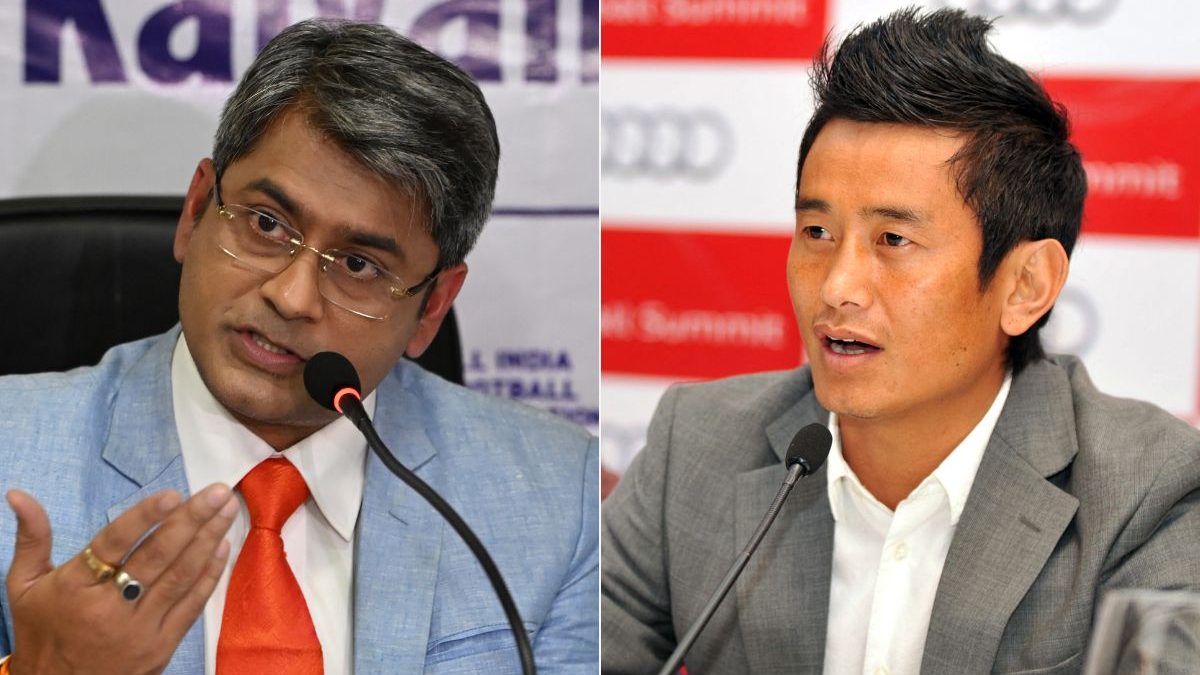

Following India's recent 1-0 defeat to Hong Kong in the AFC Asian Cup Qualifiers, former Indian football captain Bhaichung Bhutia has launched a scathing attack on the All India Football Federation (AIFF) and its president, Kalyan Chaubey, accusing them of "destroying Indian football". The loss to a lower-ranked Hong Kong side has jeopardized India's chances of qualifying for the 2027 Asian Cup, adding fuel to the fire of Bhutia's criticism.
Bhutia, who contested against Chaubey in the AIFF presidential elections in September 2022 and lost, did not hold back in his assessment of the current state of affairs. He directly blamed Chaubey for the decline of Indian football, demanding his resignation and a complete overhaul of the existing structure. Bhutia highlighted the instability within the federation, pointing out the rapid turnover of General Secretaries, with three individuals holding the position in just over two years. He argued that this reflects a deeper systemic problem that needs urgent attention.
The former captain also criticized several decisions made by the AIFF under Chaubey's leadership. One key point of contention was the appointment of Manolo Marquez as the national team coach, alleging that the Technical Committee was bypassed in the process. Bhutia also questioned the wisdom of allowing Marquez to simultaneously coach both FC Goa and the national team, raising concerns about potential conflicts of interest and divided focus.
Another decision that drew Bhutia's ire was the recall of veteran striker Sunil Chhetri from international retirement. While acknowledging Chhetri's contributions to Indian football, Bhutia deemed the move a "bad decision" driven by desperation rather than strategic planning. He suggested that the federation pushed for Chhetri's return, despite Marquez's initial request, highlighting a lack of clear vision and long-term planning.
Bhutia also voiced his concerns about the state of grassroots football development in the country. He lamented the lack of positive news and progress at the foundational level, arguing that it directly impacts the national team's performance. He criticized the AIFF's decision to offer a substantial match bonus for the Hong Kong game instead of linking such rewards to qualification, questioning the federation's priorities.
Beyond specific decisions, Bhutia also alluded to broader issues of mismanagement and corruption within the AIFF. He referenced the ongoing controversy surrounding the I-League title race, where a legal battle between Inter Kashi and Churchill Brothers has left the championship undecided for months. He said that such controversies and allegations of corruption damage the integrity of the sport and erode public trust.
The defeat to Hong Kong, ranked 153rd in the world, has further amplified concerns about India's stagnation in comparison to other Asian nations. Bhutia pointed out that countries like Uzbekistan, Indonesia, and Jordan have made significant strides, even qualifying for the World Cup, while India continues to struggle for a place in the Asia Cup.
Bhutia's criticism reflects a growing sense of frustration among Indian football stakeholders about the direction the sport is headed. While Chaubey has stated the AIFF is working on policies to integrate Overseas Citizen of India (OCI) players to address the nation's striker crisis, Bhutia's remarks suggest a deeper, more systemic overhaul is needed to revitalize Indian football from the ground up.